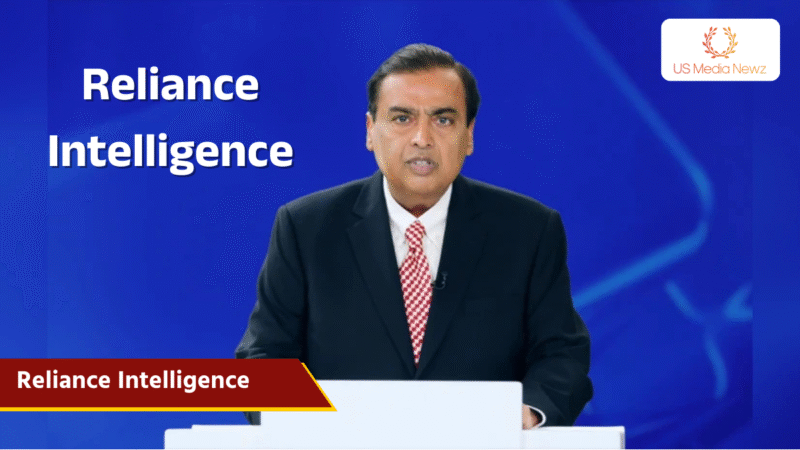Yes, You Can Get a Mortgage in Retirement. Here’s How.
Get a Mortgage loan : Boomers purchase the greatest number of homes but have the highest rejection rates for loans. Here’s how to secure the loan you desire.
The homebuyer might not be the young family or peak earner that you might expect: The National Association of Realtors found that 42% of purchases are by baby boomers (those born between 1946 and 1964), and 29% are by millennials, while Gen Xers close 24%. But while those in their 60s and 70s are buying homes, this stage of life can bring unique challenges to securing a mortgage.
What Is a Retirement Loan?
Banks might offer certain products that they promote as retirement mortgages. The phrase “retirement mortgage” can denote any mortgage loan for an individual meaning or past retirement age.
Certain mortgage features can assist retirees in qualifying with greater ease. For instance several loan regulations permit the underwriter to “gross up” earnings from nontaxable sources such’s federal employee pensions, state retirement benefits, or disability and child support payments, thus providing the borrower recognition for higher income than they truly earn.
When your income decreases but you have accumulated financial assets, some other products can help with qualifying. According to Ryan Atkins, executive vice president and director of mortgage production at First Horizon Bank, “First Horizon and many other banks,” “offer products that allow borrowers to qualify based on a calculation of asset depletion over time.” This aligns with the financial reality of most retirees.
Asset-depletion mortgages count a portion of the borrower’s assets as income for the loan. This can be up to 70% of retirement account balances.
A VA mortgage is one of the types of mortgages Christina McCollum, a mortgage loan officer at Churchill Mortgage, recommends to her eligible borrowers. For McCollum, “you don’t have to make a down payment or have private mortgage insurance” which is a reason why borrowers would find the mortgages appealing.
Borrowers who are looking to retire face the challenge of getting approved and at the same time, repaying a mortgage that is structured to be affordable later in their life. By having knowledge of the unique features of retirement mortgages, consumers can manage these issues.
Why Might You Need a Retirement Mortgage?
Baby boomers differ from younger mortgage applicants because they are far less likely to be first-time homebuyers. Here’s why they may need a mortgage:
- Relocation. According to NAR, the No. 1 reason people in their 60s and 70s buy a new home is to be closer to family, friends and relatives.
- Downsizing. Another prominent reason older people buy a home is to move to a smaller, more manageable property. NAR found that 10% of homebuyers in their 60s and 18% of people in their 70s cited this as their reason for moving.
- Refinancing. Even for people who stay in their current homes as they get older, retirement generally brings changes in cash flow. Refinancing can better align mortgage payments with the flow of retirement income.
Barriers Facing Older Mortgage Applicants
Despite generally being in better financial shape than younger borrowers, older mortgage applicants deal with higher rejection rates and tend to be charged higher mortgage rates, according to a 2023 working paper published by the Federal Reserve Bank of Philadelphia.
The research grouped borrowers by age and found that from age 25, rejection rates increased as the groups got older. The three oldest age groups had significantly higher rejection rates than the 18-24 age group – even though that age group often has relatively low income and limited credit history.
The paper speculated that lenders might be concerned about whether the loan would be repaid during the borrower’s lifetime and the borrowers’ potential declining ability to maintain their home and protect the collateral.
The Philadelphia Fed paper also found that beginning at age 30, average interest rates increased steadily as borrowers got older. This is despite the fact that older borrowers typically pay more points up front than younger ones. Researchers guessed that this could be due to differences in the way older consumers shop for home loans, among other factors.
The paper says it can’t conclude whether lenders were basing decisions on age or discriminating against applicants. “A rigorous fair lending analysis of individual lenders’ activities would be required to make such statements and is beyond the scope of this paper,” it says.
READ: Compare Current Mortgage Rates
Are Mortgage Lenders Allowed to Discriminate by Age?
By law, lenders are not allowed to discriminate against mortgage applicants on the basis of age. However, they can take into account risk factors that might be especially pronounced in older borrowers.
For example, creditors might consider whether an applicant’s income level will be maintained. Income is likely to change when a person retires and may continue to decline over time. Thus, an older applicant can present a higher risk.
Common mortgage programs, like conforming and FHA home loans, do not list different guidelines for older borrowers. You must meet the same standards for income verification as any other applicant.
For instance, lenders must verify that your income will continue for at least three years, or they can’t count it in your debt-to-income ratios. If you’re out of the workforce, lenders treat your income – for instance, Social Security, pension payments or retirement account distributions – the same way they consider sources for younger applicants – verifying that it’s stable and ongoing.
If you’re close to retirement age and still employed, it might get a little tricky. Employment income is generally presumed to be continuous, so your lender might simply accept your work income. Or it might ask about your retirement plans or send your employer a form to confirm your employment status, including your “probability of continued employment.”
See: Best Low- and No-Down-Payment Mortgages
Improving Your Chances of Getting a Retirement Mortgage
Given these obstacles, how can you improve your chances of getting approved for a retirement mortgage at a competitive interest rate?
Here are some possibilities:
- Plan ahead before you retire. Applying for a mortgage while you are still working may give you stronger and more stable income figures to provide on your application.
- Report all sources of income. Social Security, pensions, other retirement accounts and income (dividends and interest) from investments can all be considered.
- Shift your asset allocation toward more income-producing investments. This is a move people often make as they approach retirement anyway. Philip Crescenzo, a branch manager for Nation One Mortgage Corp., says, “Financial instruments that yield income or dividends can be a great planning tool.” Making this shift before you apply for a mortgage can allow you to report a higher income figure.
- Make a bigger down payment. This creates more equity right away, which makes the loan less risky. It also reduces the loan amount and monthly payment.
- Sign up for a shorter-term loan. The Philadelphia Fed paper mentions a possible concern for loans that exceed the borrower’s lifespan. Choosing a shorter mortgage can mitigate this concern and should also earn you a lower interest rate. Just make sure you can afford the higher monthly payments that typically come with shorter loans.
- Apply with another lender if you’re turned down. If your credit, income and other factors meet program guidelines, you should be able to get approved somewhere.
It’s also important to compare mortgage rates. The Fed paper mentioned shopping behavior as a possible reason for older borrowers paying higher rates. So make sure to get quotes from several lenders.
Can You Use a Traditional or Roth IRA for a Retirement Mortgage?
As you work longer, more of your wealth is likely to be tied up in a retirement plan. Is there a way you can use assets like a traditional or Roth IRA for your retirement mortgage?
The answer is that you can use IRA assets to help you buy a home, with certain limitations:
- You can use IRA money to put toward a home purchase without penalty if you are at least 59 1/2. This can be a good source of funds for a down payment for people in their 60s and 70s. Roth IRAs are especially useful for this purpose because you’ve already paid taxes on that money, so withdrawals are not taxable if you’re over 59 1/2 and have had the Roth for at least five years.
- If you are a first-time homebuyer, you can withdraw up to $10,000 to put toward the purchase of a home without an early withdrawal penalty, even if you are younger than 59 1/2. Traditional IRA withdrawals would still be subject to income taxes.
- You cannot borrow from an IRA, so you cannot use one as the source of a retirement mortgage. However, you can use assets in retirement accounts, including an IRA, to qualify for an asset-depletion mortgage.
So, while you cannot borrow from an IRA, there are ways you may be able to use it for your down payment or qualifying income. This could help you get approved for a mortgage and qualify for a better interest rate.
Key Characteristics of a Retirement Mortgage
Besides qualifying for a mortgage and getting a competitive interest rate, it’s important to choose a loan you can live with in the years ahead.
Crescenzo says, “The biggest challenges facing all retirees are moving beyond their prime earning years and maintaining their prior or current lifestyle.”
When it comes to a retirement mortgage, that means making sure the payments fit your expected cash flow.
For example, it’s probably best to choose a fixed-rate mortgage. “I would discourage older borrowers who plan to be in their home long term from using adjustable-rate mortgages, given the likelihood of a somewhat fixed income,” Atkins says.
Beyond that, anticipate how your income may change in the years ahead so you can make sure the mortgage payments will remain affordable. You might see a sudden drop in income when you retire. If you’re living off savings and investments, you might see your income diminish as the years go on.
Atkins says, “Borrowers nearing or in retirement should consider how a mortgage will affect their disposable income, especially if their earnings will decrease.”
Younger homebuyers often stretch their budgets to get a mortgage, with the expectation that their incomes will grow over time. This can be a mistake for older borrowers who may see incomes shrink instead of grow.
Things to Do Before Applying for a Retirement Mortgage
Before applying for a retirement mortgage, be sure to do the following:
- Check your credit report for problems. Fixing these may do more than help you qualify for a mortgage. It may earn you a better interest rate that will save you a lot of money in the years ahead.
- Create a sustainable financial plan. If you haven’t done so already, budget for how your income will change as you move into and through retirement. That will allow you to decide what kind of mortgage payments you can afford now and in the future.
- Build up a larger down payment. This could help overcome concerns some lenders may have about older borrowers. It will also give you more equity in the home from the start. This gives you some financial flexibility if your needs change in the future.
Most baby boomers still have a lot of years ahead of them, even in retirement. As part of that, your mortgage is something you may have to live with for a long time to come. That means there’s a big payoff to making the moves that will get you the most affordable retirement mortgage you can.








